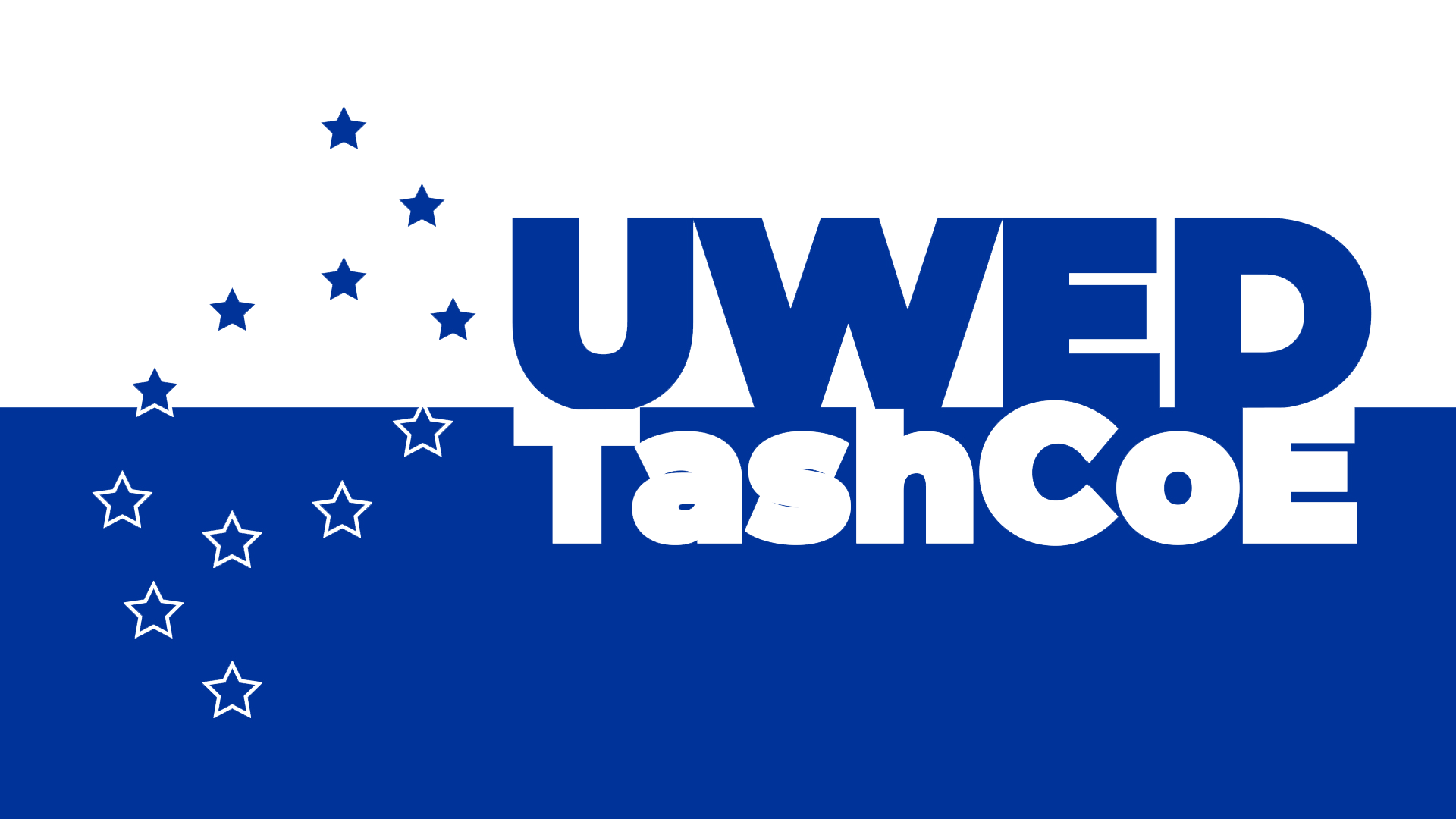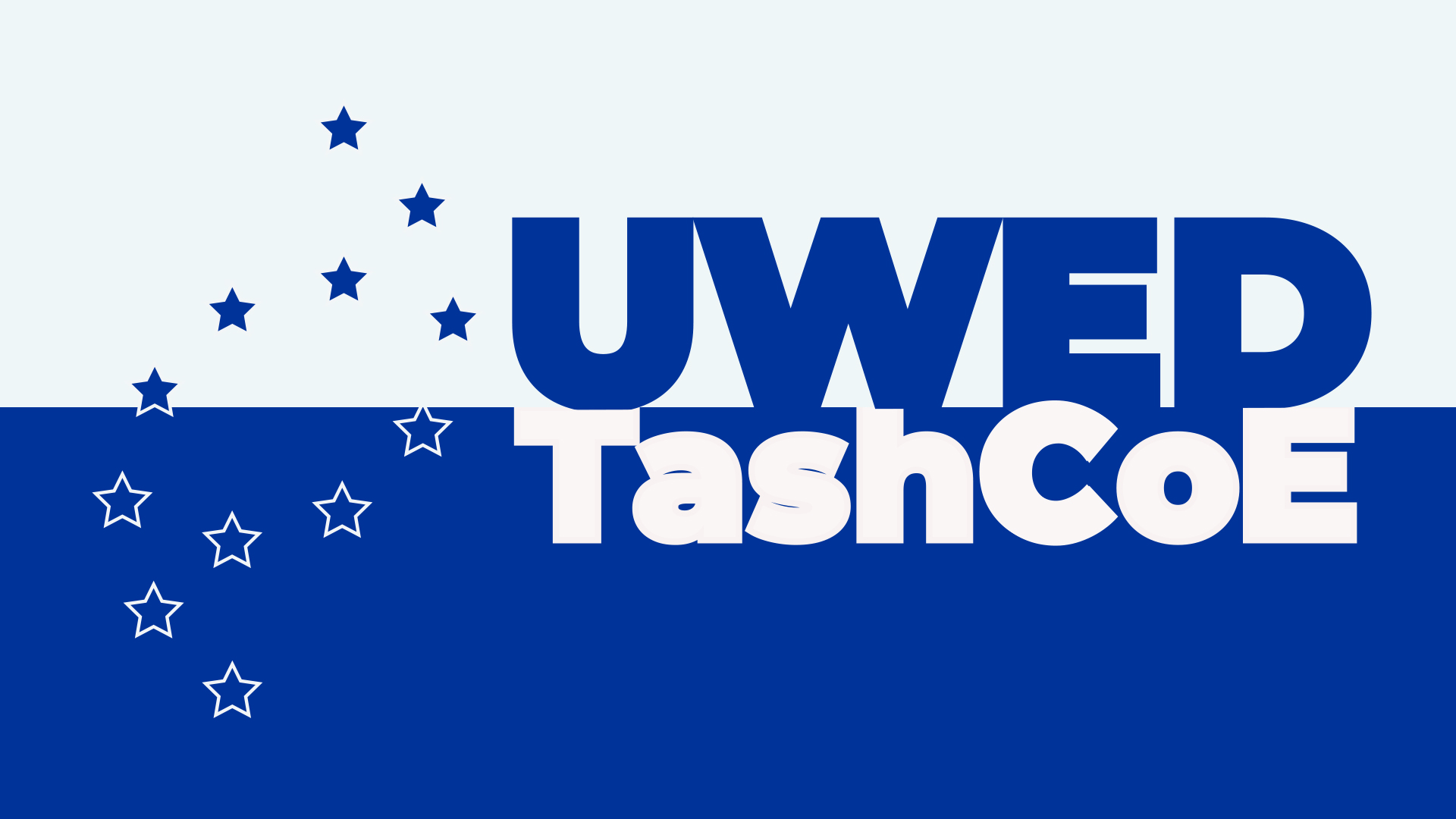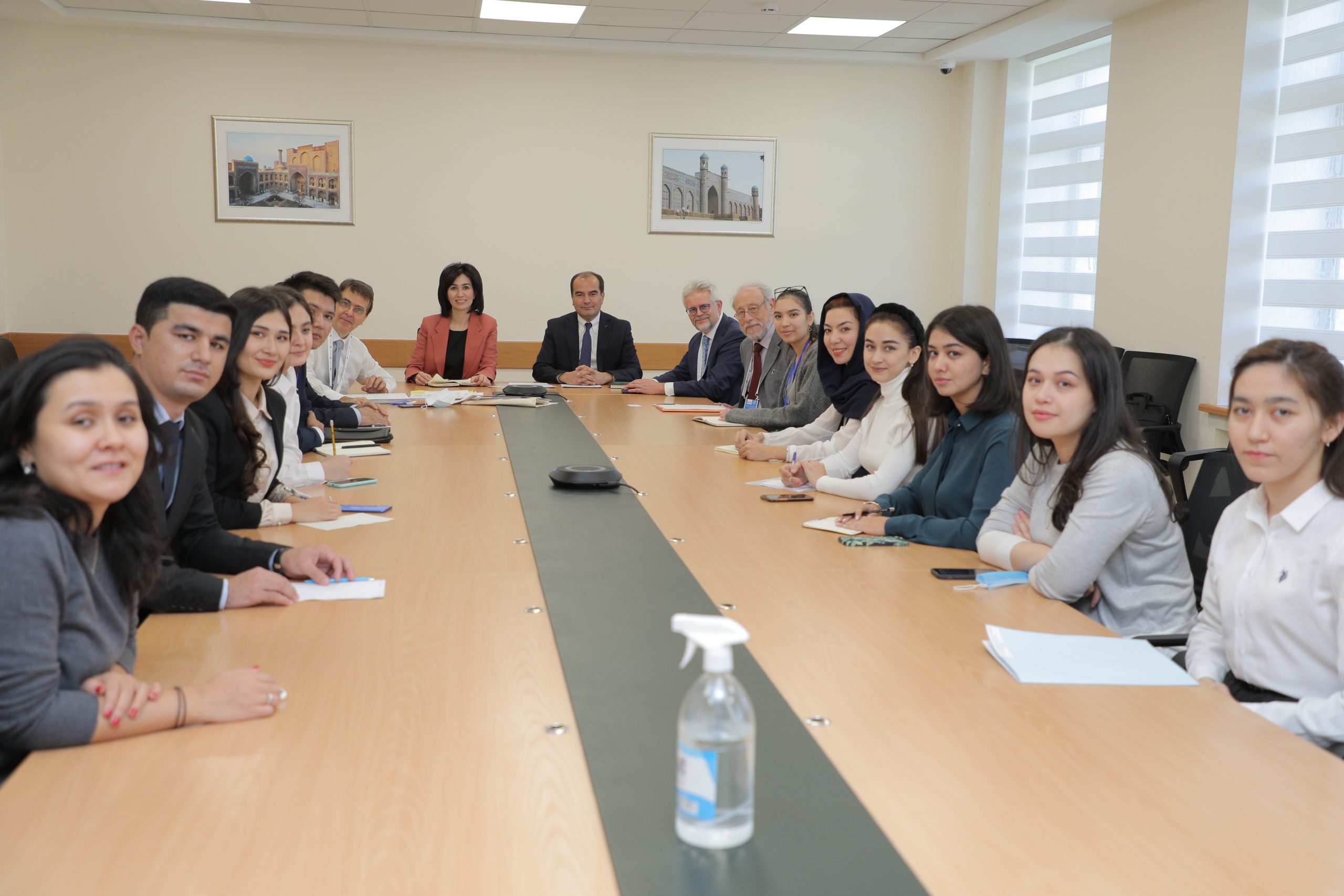On October 23, Tashkent Jean Monnet Center of Excellence for European Studies organized a roundtable discussion on “Parliamentary dimension of European integration: the case for Central Asia”. Participants of this roundtable were several expert well-known experts, such as Emmanuel Dupuy, President Institute for European Perspective & Security, Guy Olivier Faure, Founder and Expert of the Partners & Asia Research Center, Pierre Chabal, French Expert, Urban Rusnak, Secretary General of the International Energy Charter, Maximilian Krah, Member of the European Parliament; Deputy of the Legislative Chamber of the Oliy Majlis Qodir Juraev as well s professors and master’s students of the university.
The round table was opened by the Head of TashCoE, Vice-Rector for Research and Innovation, Doctor of Law, Associate Professor Gulnoza Ismailova. Afterwards, Otabek Nayimov, PhD in Political Science and Dean of the Master’s Faculty, moderated the event and delivered a speech on “The role of parliamentary diplomacy in the deepening of integration processes in Europe.” His speech was about the growing aspirations for integration in European countries, the acceleration of institutionalization of the parliamentary movement at the sub-regional and regional levels in the context of rising public opinion in Europe in the post-World War II period and the historical conditions that led to these changes. In particular, inter-parliamentary structures such as the Nordic Council, the Benelux Interparliamentary Consultative Council and the Baltic Parliamentary Assembly have promoted regional initiatives on trade, economic, law-making, humanitarian and cultural policy, foreign policy, security and international affairs by pushing the place and role of the spirit of regional coherence and integrity in decision-making was particularly recognized. Along with inter-parliamentary structures, bilateral cooperation between national parliaments has played a practical role in improving relations. In particular, it was noted that the efforts of the French and German interparliamentary friendship group had a significant impact on the reconciliation of the two countries, which then were historical rivals.
Guy Olivier Faure, an expert at the Partners & Asia Research Center, explained the historical significance of parliamentary diplomacy in strengthening the climate of mutual trust between the peoples of Europe, political reconciliation, deepening human to human contacts and cross-border ties and removing existing barriers to trade and economic ties. He also noted that the best practices of Europe can be used in the Central Asian region. In his opinion, the development of educational programs similar to the Erasmus Mundus program introduced in the European Union is important in strengthening the ties between the peoples of Central Asia. Any regional connection and cooperation projects should be carefully thought out and gradually implemented.
Pierre Chabal focused on the similarities between the peoples of the two regions. They include but are not limited to the common aspiration for development, commonalities in history, culture, language, customs and traditions that will help the peoples of Central Asia to create a more consistent and mutually beneficial system of cooperation in the future.
Deputy of the Legislative Chamber of the Oliy Majlis, Doctor of Political Sciences Qodir Juraev in his comments highlighted some of the differences between the two regions. In particular, he enumerated the differences between the historical conditions between them, their belonging to different civilizations, and the fact that the Central Asian countries had experienced a long period of colonial rule.
The following exchange of views, thought-provoking questions of experts as well as students made the roundtable discussions very interesting.





 Русский
Русский O`zbek
O`zbek